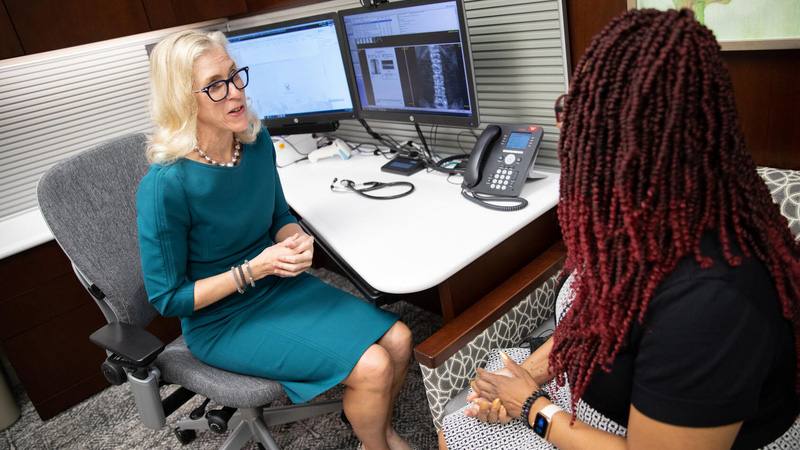Menopause marks a significant transition for women, yet understanding its precursor, perimenopause, and its symptoms can be complex.
Dr. Stephanie Faubion, director of Mayo Clinic's Center for Women's Health and medical director of The Menopause Society, says experiencing perimenopause and menopause can be confusing for some. She says it is not only patients who may find it confusing, but medical providers as well, due to lack of training in menopause management.
Journalists: Broadcast-quality video pkg (1:10) is in the downloads at the end of the post. Please courtesy: "Mayo Clinic News Network." Read the script.
"Menopause is defined by no menstrual cycle for a year," says Dr. Faubion.
She says women won't know they've entered menopause until they've experienced a full year without menstruation.
"Perimenopause is the time leading up to that, and for many women, it can last a long time — six to 10 years is possible," Dr. Faubion says.
That's when you may experience irregular periods and a host of symptoms, including hot flashes, night sweats, sleep issues and mood changes.
Dr. Faubion says women may experience "sexual symptoms, low sexual desire, vaginal dryness, pain with sexual activity."

She says there's been a lack of education and resources for women regarding menopause. There are some reasons for that.
"One is that menopause can happen at different ages for women. So anything after age 45 is considered normal for menopause," says Dr. Faubion.
And perimenopause can begin as early as 35.
"In general, women aren't hearing this from their medical providers, which is problematic because, while some women may have no symptoms going into menopause, many women actually have a laundry list of symptoms, and sometimes they're very confusing to sort out," Dr. Faubion says.
Related posts:
- How lifestyle changes may help manage menopause symptoms
- Mayo Clinic study puts price tag on cost of menopause symptoms for women in the workplace
- Mayo Clinic Minute: Managing sleep during menopause
Related Articles







